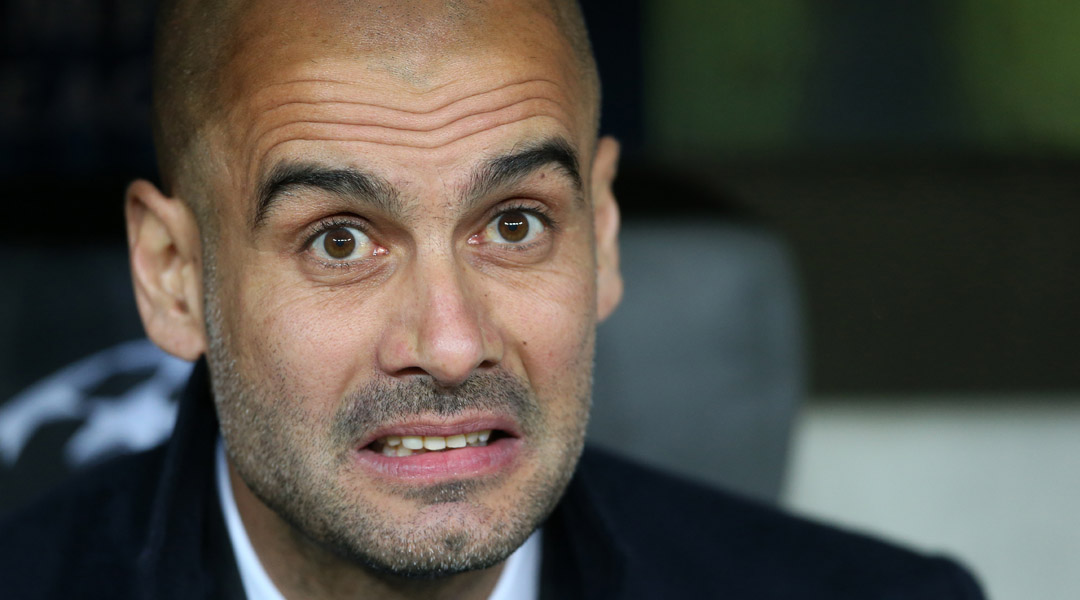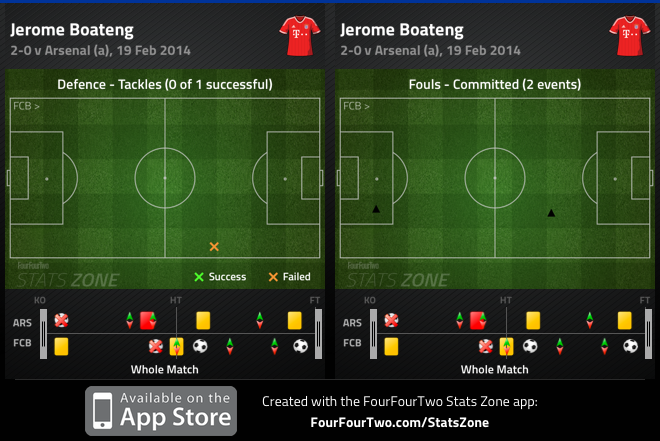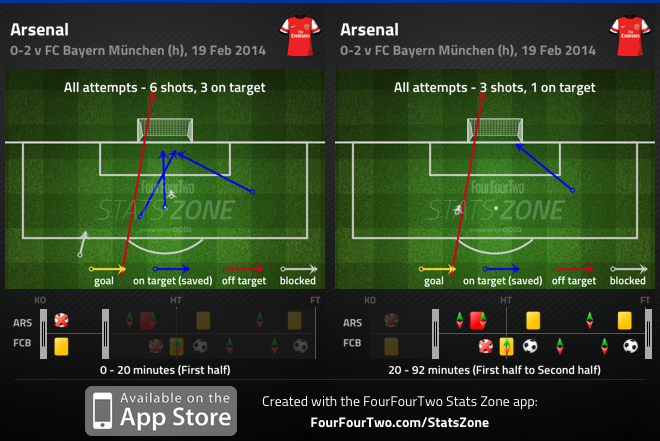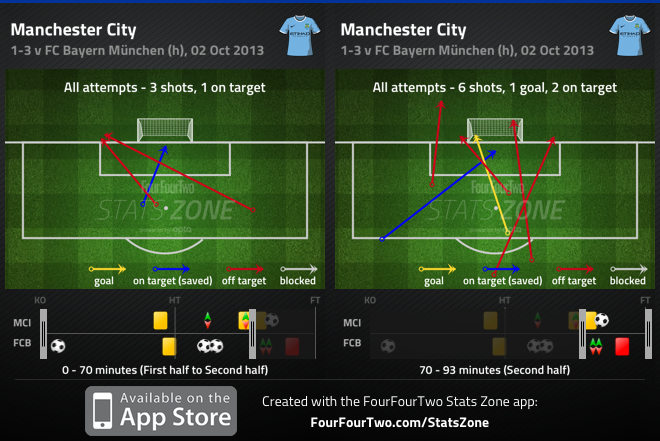Timing rather than tactics key to Manchester United's hopes of shocking Bayern
Michael Cox explains how the Red Devils can perhaps cause an upset...

Since Pep Guardiola took charge of Bayern Munich, the newly-crowned Bundesliga champions haven’t lost a genuinely competitive game.
Their two defeats have come in the Supercup against Borussia Dortmund, and in the Champions League against Manchester City – when they’d already sealed qualification to the knockout stage. The lack of losses is an obvious problem for opposition coaches: when formulating an appropriate strategy, there isn’t an obvious template to follow.
Ahead of Bayern’s meeting against Arsenal in the previous round, many looked through the Bayern side and wondered precisely where the weakness was. In terms of positions, there are probably two – Mario Mandzukic is a very good, functional striker but not a genuinely world-class player, hence the imminent signing of Robert Lewandowski to play his role. Still, because Mandzukic plays such an intelligent hold-up role and combines with so many dangerous attacking midfielders, it’s difficult to say Bayern are weak up front as a whole, even if their striker isn’t perfect. Just look at how many goals they’ve scored.
The other slight weakness is at the back. Again, assess Bayern’s ‘goals conceded’ record this campaign, and this seems a ludicrous accusation. However, a huge part of Bayern’s defending comes from proactive aspects of football – keeping the ball, pressing high up the pitch, forcing the opposition back with relentless running from full-back. When Bayern are without possession, however, their centre-backs can be exposed.
Jerome Boateng and Dante are both fine footballers, but as Arsenal showed in a brilliant 10-minute opening spell at the Emirates (rather ruined by Mesut Ozil’s penalty miss) both can be lured out of position and tempted into clumsy tackles. Boateng’s penalty concession was followed by an unnecessary foul halfway inside the opposition half, for which he was fortunate not to receive a second booking – he was hauled off at half-time.

Manchester United, then, should expose the Bayern centre-backs as frequently as possible. Clearly, this is easier said than done – Bayern’s passing quality means opponents simply don’t get many opportunities to attack the centre-backs. United must accept they won’t see much of the ball for long periods, and instead concentrate on attacking Bayern at the beginning and end of the game – a ‘bookend’ strategy, if you like.
There is some logic behind this approach. First, Bayern (as well as Barcelona in the Guardiola era) tend to start big matches rather nervously – if pressed and harried from the beginning, they struggle to settle, and need to get into their usual, confident passing rhythm before truly exerting their attacking quality upon the game.
Get FourFourTwo Newsletter
The best features, fun and footballing quizzes, straight to your inbox every week.
If Manchester United can get into Bayern’s faces and pressure them energetically early on, this may be extremely effective. The problem, of course, is that this approach doesn’t come naturally to United under David Moyes – they tend to sit back in deeper positions. Still, United have a habit of starting European matches at home extremely quickly, and if the fans provide a traditional Old Trafford atmosphere for the clash, there’s no reason United can’t start strongly and put the opposition centre-backs under pressure.
Then, there is likely to be a long, frustrating period of Bayern dominance. United simply must defend well in this period, keeping their shape and counter-attacking whenever possible – it will mainly be about weathering the storm.
However, there is a light at the end of the tunnel – Bayern fade towards the end of matches. This appears to be part-tiredness - their defensive game depends upon pressing heavily up the pitch, which is rarely sustainable for 90 minutes - and part-complacency. The manner they blew a two-goal lead against Manchester City, ending up losing the game 3-2, shows their tendency to stop playing too early.
At Old Trafford, United need to learn lessons from the two English clubs who have hosted Bayern this season. Both Arsenal and Manchester City lost their home matches, but Arsenal registered 66% of their shots in the opening 20 minutes.

While Manchester City registered 66% of their shots in the final 20 minutes.

In the Bundesliga, three of the 11 goals Bayern have conceded have been after the 86th minute – none of them crucial, but it shows how the opposition can get joy late on. And, as we know, United have a history of winning games late on against Bayern…
Whatever approach United try against Bayern, they will be second favourites. But a tactical approach is partly about exposing the opposition’s weakness – and Bayern’s major weakness might be about a time period, rather than a specific position on the field.
